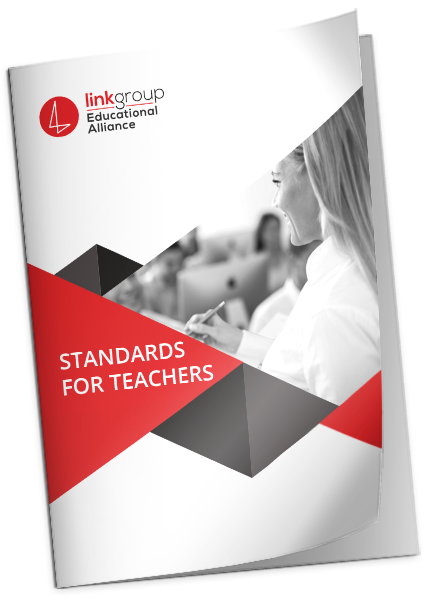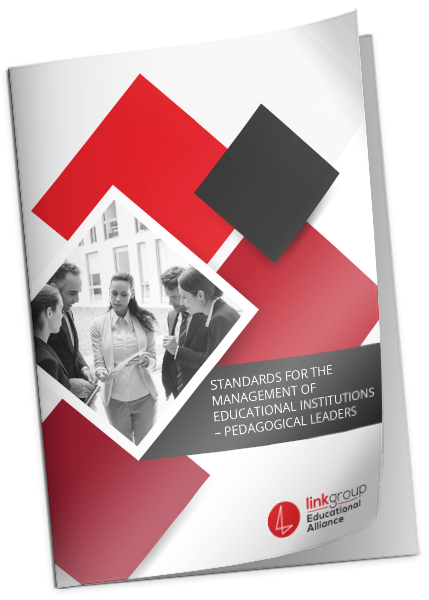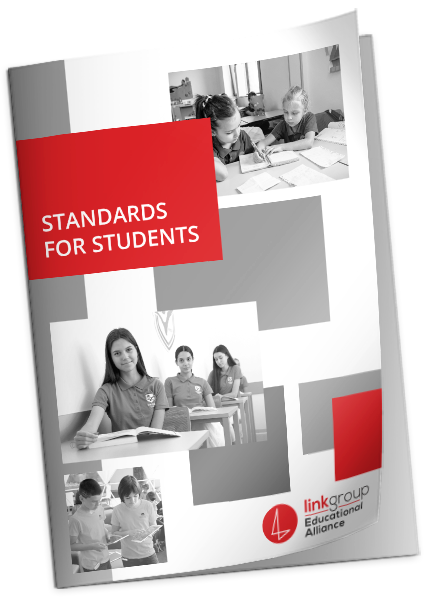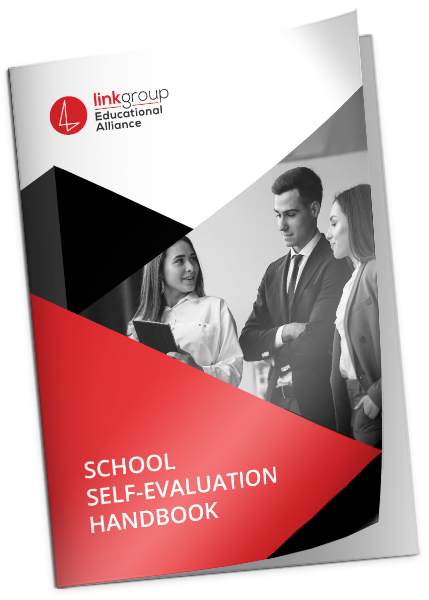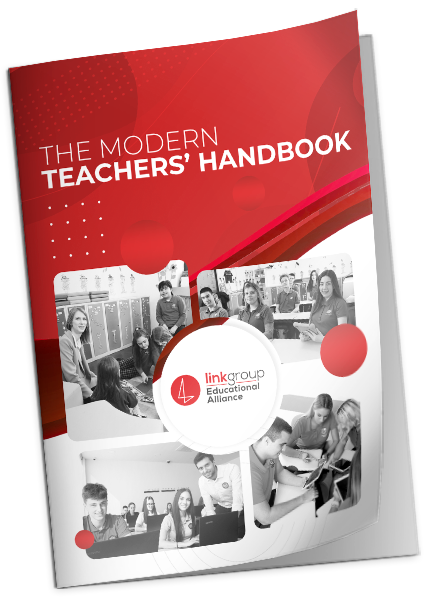From the beginning, the institutions within the LINK edu Alliance have been striving to meet the high global criteria and principles of excellence – and succeeding. This unsurpassed quality is exactly what makes any LEA school, institute or service instantly recognizable.
With this in mind, adopting documents that confirm, formalize and standardize this fact has been perceived as the logical next step in the alliance’s development. Through adopting the LINK standards, the LINK edu Alliance has made this important step on the path of raising the level of education across its schools, institutes and services.
The highest quality of service at the institutions within the LINK edu Alliance is defined through official guidelines, procedures and standards for continual implementation of top-quality teaching practices:
- LINK standards for teachers;
- LINK standards for managers of educational institutions – leaders in pedagogy;
- LINK standards for students;
- Handbook for the self-evaluation of LINK standards in educational institutions.
LINK standards were created as a result of decades of alliance’s experience in the modernization of education and rely on well-tested practices of the world’s best schools and the implementation of strict EU regulations. They are the fruit of comprehensive expert analysis of contemporary teaching methods and the use of technology in teaching, the desire to reach the best possible levels of effectiveness in teaching and the need for compliance with the defined, legally established framework.
Each of these standards includes a wide range of principles and activities our educational institutions are proud to implement in their everyday operations, as they have already been doing for quite some time.

